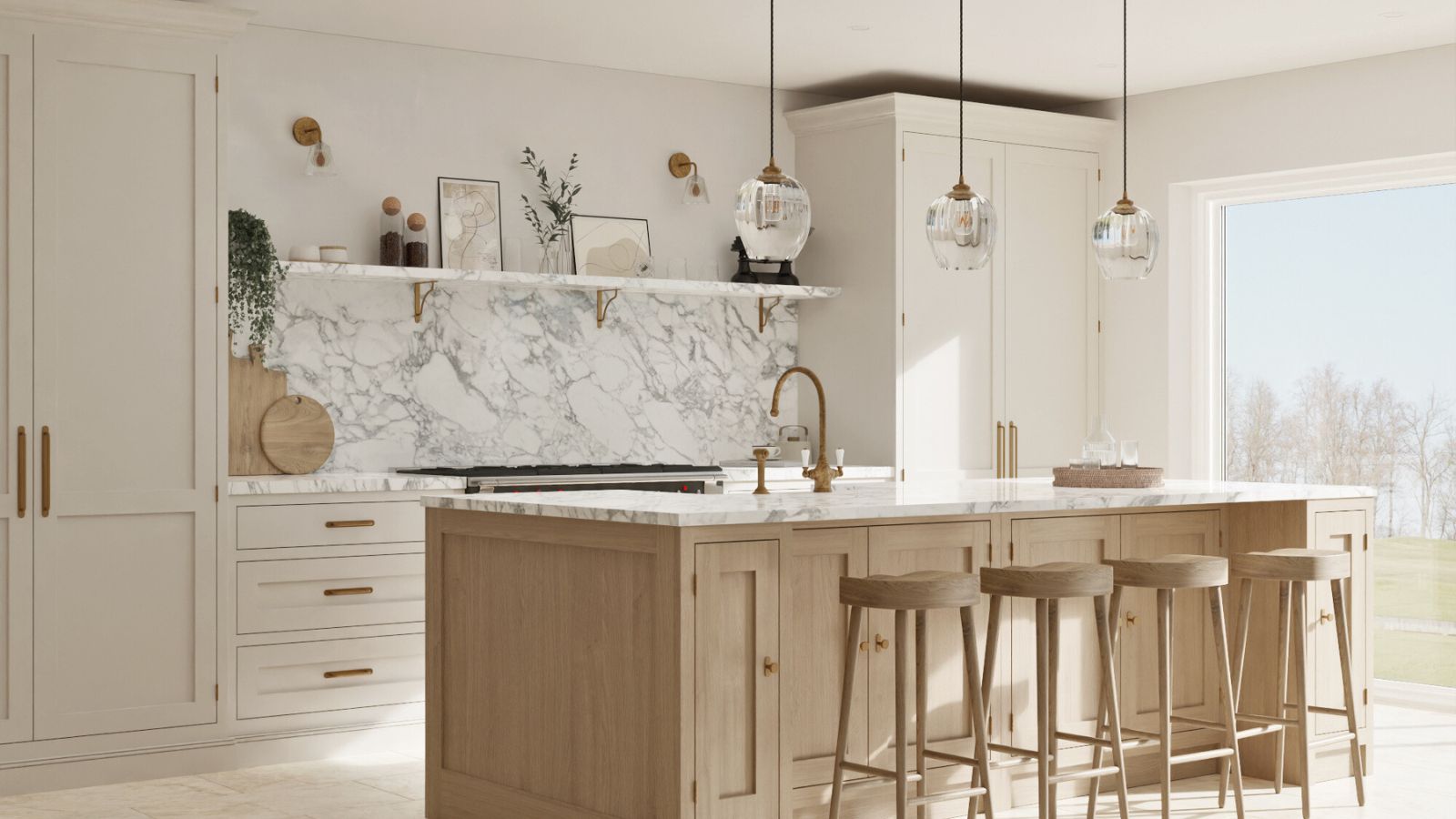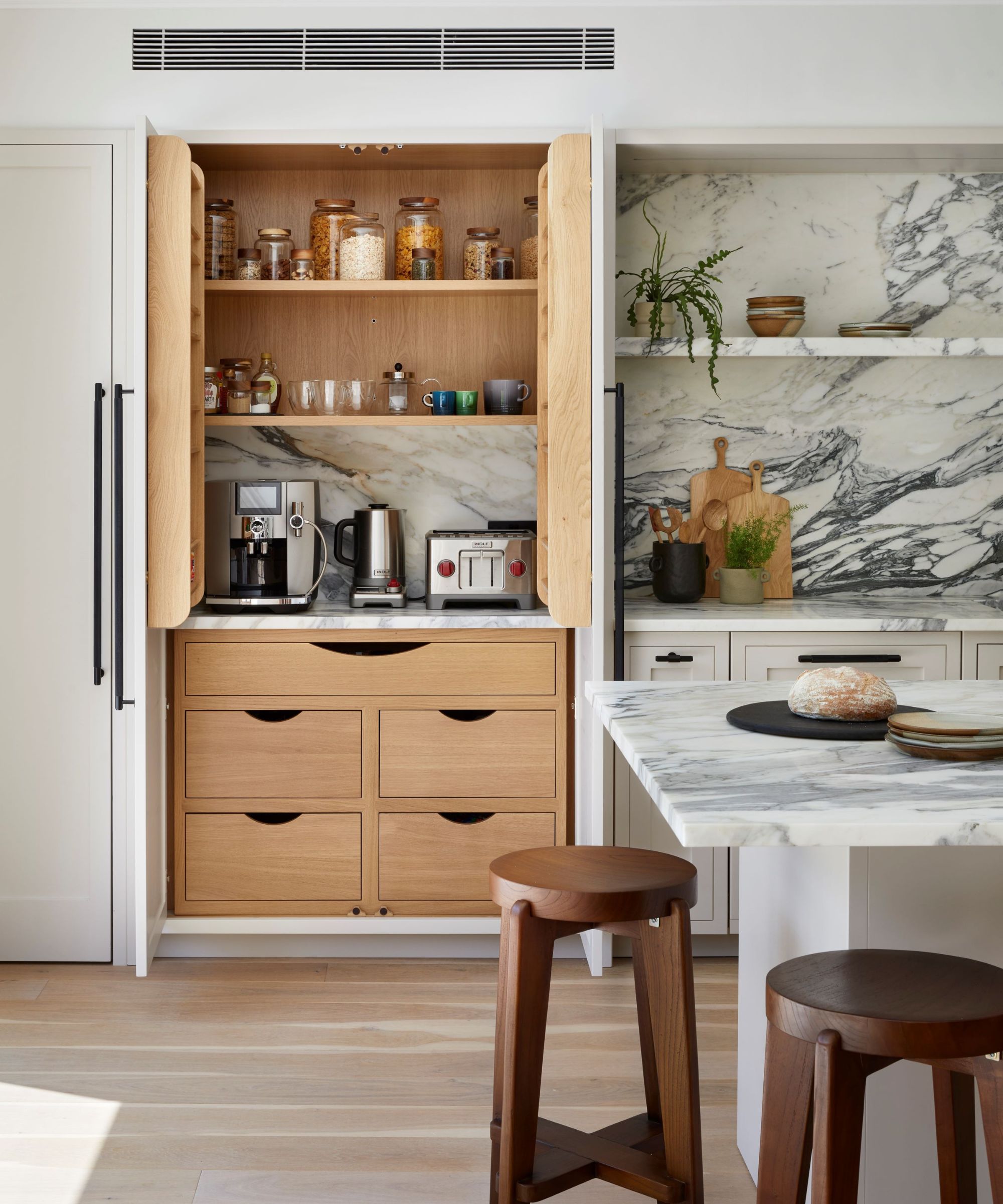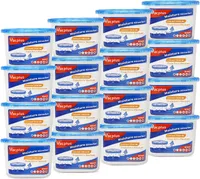How to keep moisture out of a pantry – 5 essential tips to protect your food storage space
These five tips for keeping moisture out of a pantry are the only way to protect your kitchen, experts say


Design expertise in your inbox – from inspiring decorating ideas and beautiful celebrity homes to practical gardening advice and shopping round-ups.
You are now subscribed
Your newsletter sign-up was successful
Want to add more newsletters?

Twice a week
Homes&Gardens
The ultimate interior design resource from the world's leading experts - discover inspiring decorating ideas, color scheming know-how, garden inspiration and shopping expertise.

Once a week
In The Loop from Next In Design
Members of the Next in Design Circle will receive In the Loop, our weekly email filled with trade news, names to know and spotlight moments. Together we’re building a brighter design future.

Twice a week
Cucina
Whether you’re passionate about hosting exquisite dinners, experimenting with culinary trends, or perfecting your kitchen's design with timeless elegance and innovative functionality, this newsletter is here to inspire
If you have noticed dried food in your pantry going bad quickly, or cardboard packaging going soft or even moldy, then you have moisture in your pantry.
But how do you keep moisture out of a pantry? Experts suggest there are five key ways you can limit its impact in your kitchen and protect your food storage to extend the life of your groceries.
This is what you need to do.
How to keep moisture out of a pantry
Whatever the cause, it is vital to treat this common kitchen problem right away and restore your pantry to prevent rotting items and warping wood.
Try to work out why your pantry is damp in the first place – dehumidifiers are only so good and the problem will only come back as soon as you take it away, after all.
Finding the cause, be it inadequate ventilation when you’re cooking or not heating your kitchen entirely, will be the best way to keep moisture out for good.

1. Ventilate your pantry
Whether you have a walk-in pantry or a small cabinet space, ventilation is key, begins Mike Powell, structural engineer and certified mold assessor, owner of Red Flag Home Inspection:
Design expertise in your inbox – from inspiring decorating ideas and beautiful celebrity homes to practical gardening advice and shopping round-ups.
‘One of the most common measures taken is to ventilate the pantry. Some opt for louvered doors that provide airflow, and others may provide gaping around more solid core doors.
‘Alternatively, a pass-through grille can be installed in the wall above or beside the door, which can let air exchange occur.’
2. Use moisture-absorbing products
Pantries have the benefit of being a smaller enclosed space, meaning that tricks that don't always work to reduce humidity in a house works wonders. Sol Kruk, licensed home inspector and owner of Property Inspection Pros suggests using moisture-absorbing products.
These include silica gel packets, desiccant bags, or moisture-absorbing crystals, which can be placed on pantry shelves, he says.
‘These products work by absorbing excess moisture from the surrounding air, effectively safeguarding your stored goods. However, it's important to note that they have a limited capacity for moisture absorption. Regularly monitor these products and replace or recharge them as needed to maintain their effectiveness.’
Moisture Absorber Boxes | $32.99 for 16 at Amazon
This moisture absorber uses spherical calcium chloride to enlarge the absorbing area and trap excess moisture quickly.
3. Consider your shelving options to improve airflow
When planning your pantry shelving it is not just the aesthetic you need to worry about. If you know your pantry is prone to dampness, then you might want to opt for shelving alternatives that will allow good airflow, says Artem Kropovinsky, interior designer and founder of Arsight.
‘Opt for a design twist with metal or mesh shelving. Beyond their modern aesthetic, they also encourage superior airflow, keeping dampness at bay,’ he explains.
They also need to keep your pantry cleaning easy and straightforward.

Based in New York, Artem Kropovinsky, founder of Arsight, has a decade of extensive and considerable global design experience. Prioritizing minimalism, sustainability, and authenticity, Artem, alongside his team of professionals, works on projects in the US and worldwide.
4. Add in a dehumidifier
If your pantry remains damp even with these steps, then it might be time to turn to a dehumidifier as a last resort, says Evan Scoboria, contractor and owner of Prime Home Humidity.
In a bigger pantry, a larger device will be needed, but you might be able to get away with a portable alternative, like a small dehumidifier from Amazon.
One thing to note about a dehumidifier, however, is that they are not a permanent fix, and you need to find the root of the issue, Evan reminds us. ‘These effectively remove moisture from a pantry but require monitoring and emptying of a reservoir regularly. Based on our experience and client feedback, this method is challenging to manage consistently over time.
‘If your home has a drain location nearby, you can equip your dehumidifier with a gravity-fed hose or a small lift pump to discharge condensate into a drain receptacle. Ensure this drain is properly plumbed with an air trap so the discharged water does not evaporate and cause a rise in humidity.’

Evan Scoboria created Prime Home Humidity to offer expert advice to help people make informed decisions about humidity issues and management.
FAQs
Why is my pantry damp?
Your pantry might be damp for a few reasons. The main cause is condensation, caused when you do not ventilate your kitchen properly when cooking, and moisture in the air seeps into the pantry, leading to dampness and mold. It might also be a result of having a cold kitchen that is not heated properly. This is particularly common in older properties where it is more difficult to maintain a constant temperature.
Does a bowl of salt help condensation?
If you have a small amount of condensation or dampness, then a bowl full of salt could help to reduce moisture in the air. In severe cases, however, or in large spaces, this won't be enough. In these cases, you need to work out the source of the dampness and use a larger dehumidifier to combat mold and moisture in the air.
When dealing with moisture in a pantry, it can help to have a visual aid to ensure your humidity levels remain safe and constant, says Evan Scoboria, contractor.
‘It's hard to gauge the humidity level in small spaces like a pantry. To gain a better understanding of your ambient humidity, you can introduce an inexpensive digital hygrometer to the space. An ideal humidity level will be around 50%. Take an initial reading and then monitor your hygrometer for changes as you take corrective measures.’

Chiana is Homes & Gardens’ kitchen appliances editor. With a lifelong passion for cooking and baking, she grew up experimenting in the kitchen every weekend with her baking-extraordinaire Mom, and has developed a great understanding of how tools and appliances can make or break your ideal relaxing kitchen routine.
